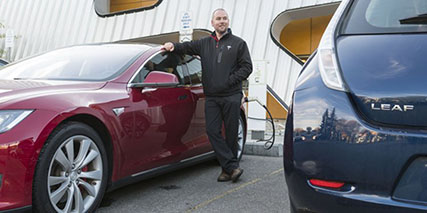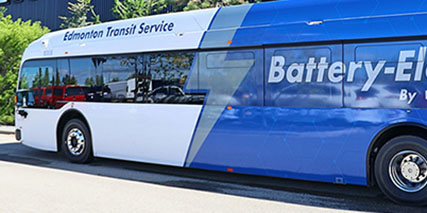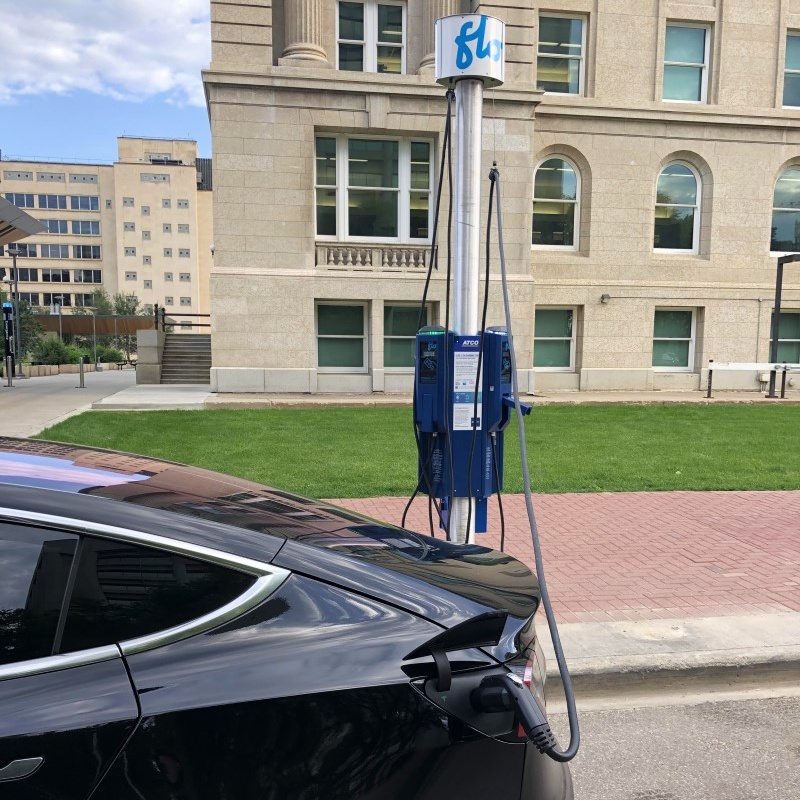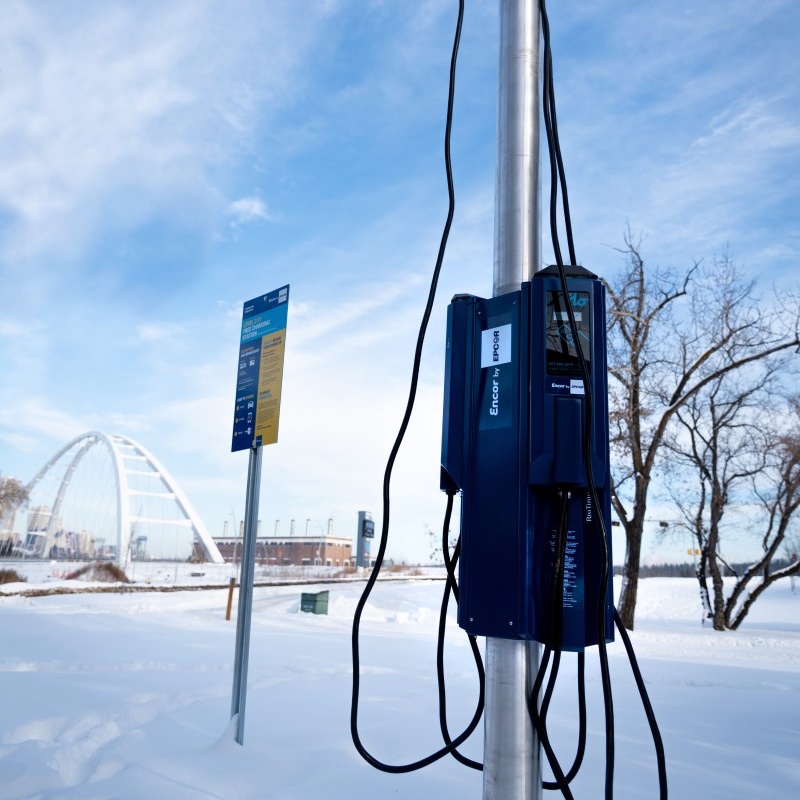We know that cars will continue to be a part of Edmonton’s transportation system, but we need to think about how we can shift away from fossil fuels and towards electrification. Electric vehicles are one way to limit our environmental impact from personal vehicles.
The City's Electric Vehicle (EV) Strategy identifies how we can make it easier for people to own an electric vehicle, prepare the path for electrifying transportation of personal vehicles and ultimately help reduce greenhouse gas emissions.
Making the Switch to an EV
Electric vehicles produce less greenhouse gas emissions, are cheaper to operate and maintain and deliver great performance.
EV Resources
Electric and Hydrogen Vehicle brochure:
Electric Vehicle and Hydrogen Expo: Education Stage video recordings.
Electrical Vehicle Charger Permit Process
Electric Micromobility brochure, because it's not just cars:
EV Myths
Fact: Driving an electric vehicle in Alberta has been estimated to reduce emissions by up to 41% compared to an internal combustion engine vehicle (gas/diesel) and that percentage is expected to increase to up to 74% as Alberta’s electric grid gets greener. Considering life-cycle emissions, EVs have been shown to offset their excess manufacturing emissions within the first 6 to 16 months of operation due to the absence of tailpipe emissions.
Fact: While the initial purchase price of electric vehicles is higher, the federal government has purchase and lease incentives available for light-duty as well as medium and heavy-duty electric vehicles.
Fact: EVs cost less to maintain and operate due to fewer moving parts and lower fuel costs. The average annual savings on fuel and maintenance for an EV in Alberta compared to an internal combustion engine (ICE) vehicle is about $3,000.
Fact: EVs are safe and effective in Edmonton winters. Battery range can be reduced in cold weather but is still well within the average Edmonton trip distances. Electric vehicles will also start instantly in the cold and heat up quickly.
Fact: The City’s latest Household Travel Survey shows that the average car trip in Edmonton is 9.4km while the average round trip commute is 25.6km - well within the range of electric vehicles on the market today. The range for EVs varies from 175km to over 500km.
EVs are for Everyone
Learn about why the world is moving to electric vehicles, their many advantages and what vehicles are available in Canada by visiting Plug ‘N Drive. From compact cars to SUVs, you are sure to find an electric vehicle that fits your lifestyle.
Electric Buses
Edmonton Transit Service (ETS) continues to be at the forefront of electric buses in Canada. These buses will help reduce greenhouse gas emissions and provide more sustainable transportation.
ATCO EV Curbside Project
As part of a 5-year pilot project, ATCO has installed 5 dual-port Level 2 electric vehicle charging stations for public use. The charging stations are located on street curbside parking spaces owned by the City. The cost to charge your electric vehicle is $2.50 per hour with free parking. Note: parking restrictions may apply, for example, seasonal parking bans.
Encor EV Charging Stations
The City of Edmonton has partnered with Encor by EPCOR on the Energizing Edmonton Project. Encor has installed EV charging stations in places that make sense for people on the go and are easy to use.





